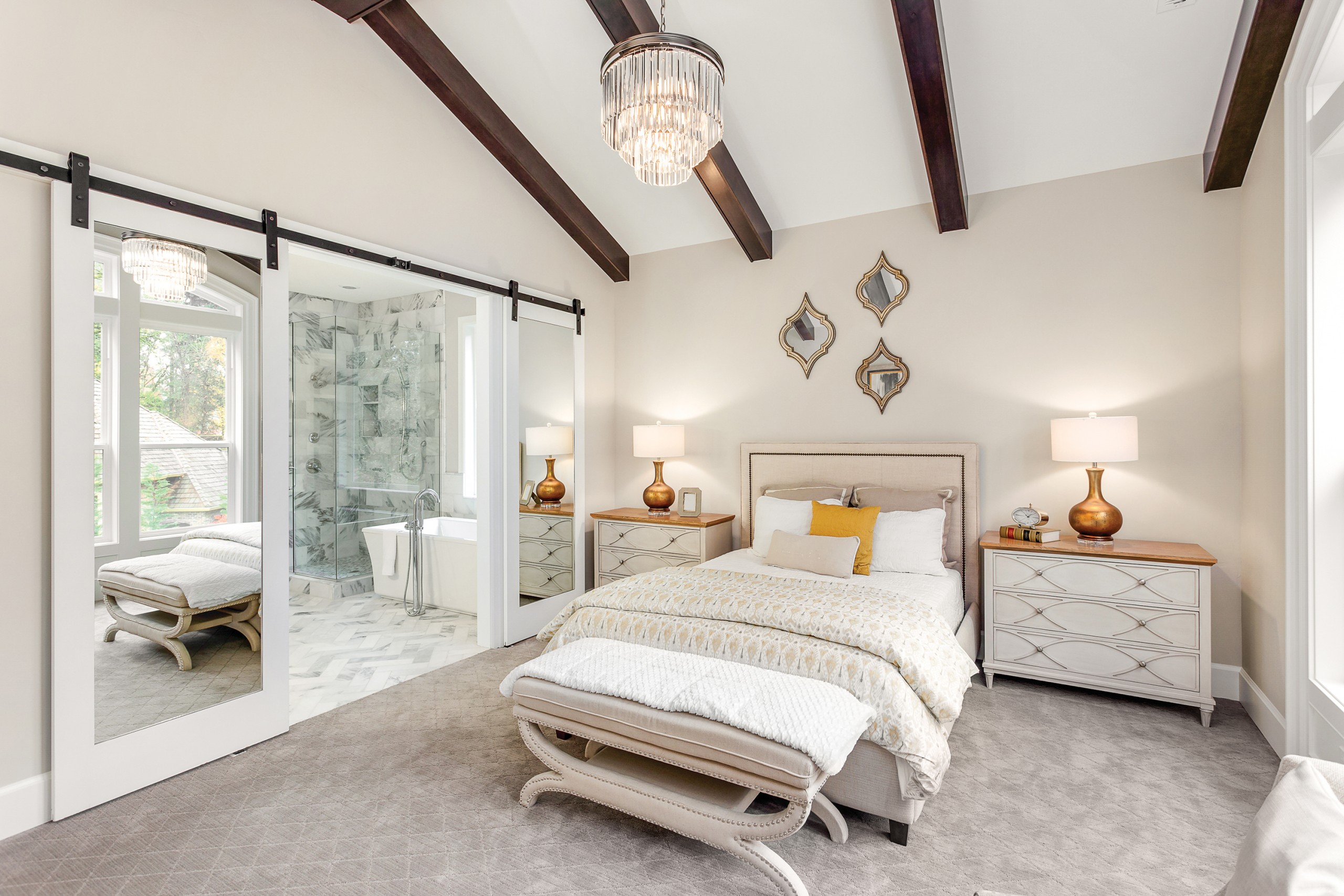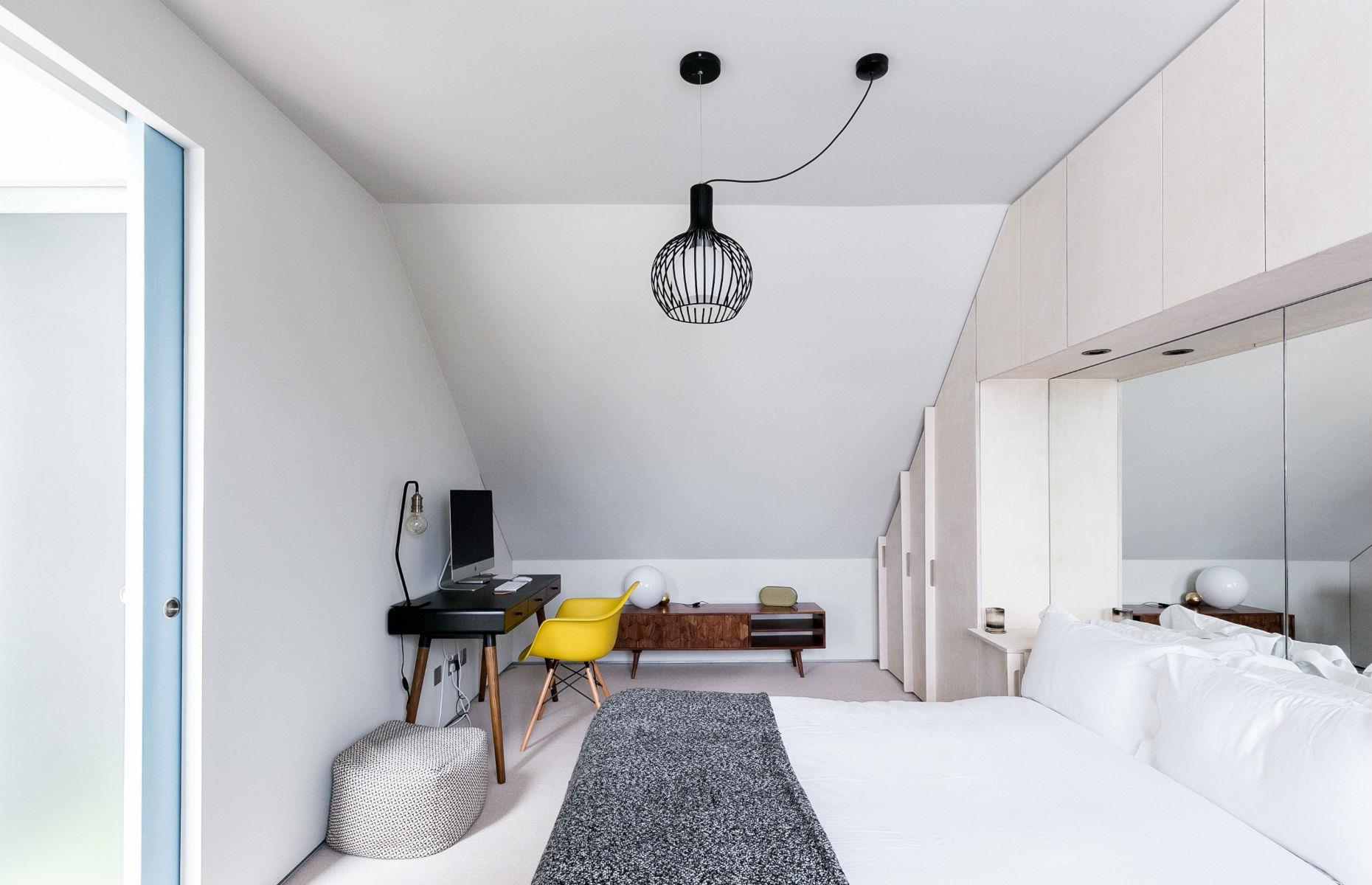Financial Considerations: Value Of Adding Bedroom To House

Adding a bedroom to your home can be a significant investment, but it can also yield a substantial return. The financial impact of this project will depend on several factors, including the size of the addition, the location of your home, and the current market conditions. It’s crucial to weigh the potential benefits against the associated costs to determine if adding a bedroom is a financially sound decision for you.
Property Value Increase
Adding a bedroom to your home can significantly increase its value, potentially making it more appealing to a wider range of buyers. This is because a larger home generally commands a higher price in the real estate market. The extent of the value increase will depend on factors such as the size and quality of the new bedroom, the overall condition of your home, and the current demand for housing in your area.
For instance, a recent study by the National Association of Realtors found that adding a bedroom can increase the value of a home by an average of 10-20%. However, it’s important to note that these are just estimates, and the actual increase in value may vary depending on the specific circumstances.
Estimated Cost of Adding a Bedroom
The cost of adding a bedroom can vary widely depending on factors such as the size and complexity of the project, the location of your home, and the cost of labor and materials in your area.
A typical bedroom addition can cost anywhere from $20,000 to $50,000 or more.
Here’s a breakdown of the estimated costs:
- Labor: This is typically the largest expense, accounting for 30-50% of the total cost. Labor costs will vary depending on the size and complexity of the project, as well as the experience and expertise of the contractor.
- Materials: The cost of materials will depend on the type of construction materials used, such as framing lumber, drywall, roofing shingles, windows, and doors.
- Permits: Building permits are required for most home additions and can vary in cost depending on the local regulations.
- Other Expenses: Other expenses may include demolition, landscaping, and electrical and plumbing work.
Return on Investment
Adding a bedroom can be a good investment if you plan to live in your home for several years. However, it’s important to compare the return on investment for adding a bedroom versus other home improvement projects.
For example, a kitchen remodel or bathroom upgrade may yield a higher return on investment than adding a bedroom.
The return on investment for a home improvement project is calculated by dividing the increase in property value by the cost of the project.
Monthly Mortgage Payment Increase
Adding a bedroom will likely increase your monthly mortgage payment. The amount of the increase will depend on the size of the addition, the interest rate on your mortgage, and the length of your mortgage term.
For example, if you add a bedroom that increases the value of your home by $20,000, and your mortgage interest rate is 4%, your monthly mortgage payment could increase by approximately $100.
Lifestyle Benefits
Adding a bedroom to your home can significantly enhance your lifestyle by creating a more comfortable and functional living space. This additional room can positively impact family dynamics, offer dedicated spaces for various needs, and provide a sense of spaciousness that improves the overall quality of life.
Enhanced Family Dynamics
The addition of a bedroom can alleviate the common challenges of limited space, especially in families with growing children or multiple generations living together. By providing a dedicated space for each member, it fosters a sense of privacy and autonomy, contributing to a more harmonious living environment.
- Reduced Conflicts: A separate bedroom for each child can minimize conflicts over space and belongings, promoting a more peaceful and less stressful household.
- Improved Family Relationships: Dedicated spaces can encourage family members to engage in their own activities, fostering a sense of independence while maintaining a strong family bond.
- Increased Privacy: A dedicated bedroom allows for moments of solitude and relaxation, crucial for mental well-being and fostering personal growth.
Dedicated Spaces for Various Needs
Adding a bedroom opens up possibilities for creating dedicated spaces for specific purposes, catering to individual needs and interests.
- Home Offices: A dedicated home office space can enhance productivity and professionalism, offering a quiet and organized environment for work.
- Guest Rooms: A spare bedroom provides a comfortable and welcoming space for visitors, enhancing hospitality and fostering stronger connections with loved ones.
- Children’s Bedrooms: A separate bedroom for each child can provide a safe and stimulating environment for their development, encouraging creativity and self-expression.
More Space for Hobbies, Storage, and Personal Belongings
Having an extra bedroom allows for more space for hobbies, storage, and personal belongings, contributing to a less cluttered and more organized living environment.
- Hobby Room: A dedicated space for hobbies can encourage creativity, relaxation, and personal growth.
- Storage Solutions: An extra bedroom can serve as a dedicated storage space for seasonal items, bulky furniture, or other belongings, maximizing available space in the main living areas.
- Increased Organization: A well-organized home fosters a sense of peace and tranquility, promoting a more enjoyable and efficient living environment.
Practical Considerations
Adding a bedroom to your home involves more than just envisioning a new space. It’s crucial to consider the practical aspects, including the type of addition, potential challenges, and the necessary steps to ensure a successful project.
Types of Bedroom Additions
The type of bedroom addition you choose will depend on your home’s structure, budget, and desired outcome. Here are some common options:
- Finished Basement: This option is often cost-effective and can provide ample space for a bedroom. However, it requires careful consideration of moisture control, ventilation, and egress requirements.
- Attic Conversion: Converting an attic into a bedroom offers a unique space with potential for skylights and views. However, it may involve structural reinforcement, insulation, and limited headroom in some areas.
- Addition: Building a new addition to your home provides the most flexibility in terms of design and space. However, it is also the most expensive option and may require permits and zoning approvals.
Challenges and Considerations
Adding a bedroom can present several challenges that require careful planning and execution.
- Structural Integrity: Ensure that your home’s foundation and framing can support the weight of a new bedroom. This may involve structural engineering assessments and potential reinforcement.
- Zoning Regulations: Check with your local zoning department for regulations regarding bedroom additions, including setbacks, lot coverage, and building codes. Failure to comply could result in fines or even demolition.
- Noise Insulation: If you’re adding a bedroom near existing living areas, proper noise insulation is essential for a peaceful sleep environment. Consider soundproof walls, doors, and windows.
- Accessibility: Ensure that the new bedroom is accessible for people with disabilities, meeting relevant building codes and regulations.
Comparison of Bedroom Addition Methods
The following table compares the pros and cons of different bedroom addition methods:
| Method | Pros | Cons |
|---|---|---|
| Finished Basement | Cost-effective, ample space | Potential moisture issues, limited natural light |
| Attic Conversion | Unique space, potential for skylights | Structural reinforcement required, limited headroom |
| Addition | Flexibility in design, ample space | Most expensive option, permits and zoning approvals required |
Checklist for Bedroom Addition, Value of adding bedroom to house
Before embarking on your bedroom addition project, it’s crucial to have a comprehensive checklist:
- Consult with a Professional: Engage an architect or contractor experienced in bedroom additions to assess your home’s suitability and provide expert advice.
- Obtain Necessary Permits: Secure all required permits from your local building department to ensure legal compliance.
- Develop a Budget: Establish a realistic budget for the project, including labor, materials, and potential unforeseen expenses.
- Plan for Utilities: Consider the necessary utilities for the new bedroom, such as electrical wiring, plumbing, and HVAC.
- Address Noise and Insulation: Plan for adequate noise insulation to create a peaceful sleep environment.
- Ensure Accessibility: Design the bedroom to meet accessibility requirements for people with disabilities.
- Choose Quality Materials: Select durable and aesthetically pleasing materials for the bedroom’s construction and finishes.
- Prioritize Safety: Implement safety measures during construction, including proper ventilation, fire protection, and fall prevention.

